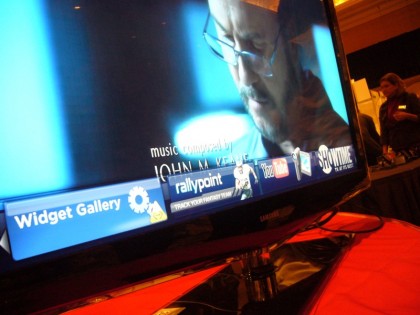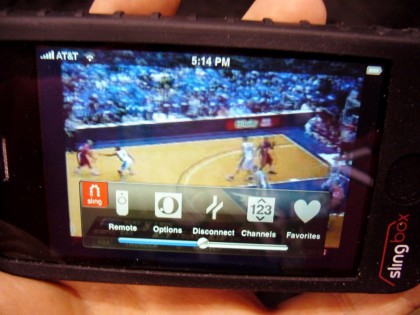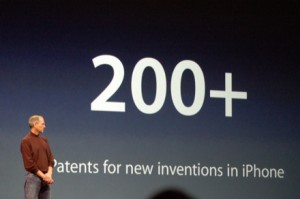A periodic roundup of relevant news from our friends at Zatz Not Funny…

Yahoo’s Internet TV widget platform
Dave Zatz: The biggest story of CES, given our focus here at ZNF, was the unveiling of Yahoo’s Internet TV platform. Of course, just as meaningful as the technology itself, are the multiple heavy hitting partners signed to deploy it beginning this spring.
iPhone shortcomings?
Dave Zatz: The Boy Genius is out with his top ten iPhone annoyances. While several can be filed as minutiae that won’t bother most folks to any great extent, I’ve yet to meet the perfect handset. The iPhone is no different, possessing a variety of quirks and limitations.
Boxee, finally living up to square name?
Dave Zatz: The Boxee team, flush with cash and excellent exposure, is seeking feedback on the prospect of directly embedding their experience into a hardware platform.
Evolution of the Verizon Hub
Mari Silbey: Tech specs are still fuzzy, but what we do know is that this is a POTS-based cordless phone system with a touchscreen for Internet access and integration with Verizon wireless and VoIP phone services. It’s meant to act as a digital photo frame, note board, family calendar, and widget station all at once.

 If 2008 was the year of the Netbook, is it too late for Nokia to jump on the bandwagon?
If 2008 was the year of the Netbook, is it too late for Nokia to jump on the bandwagon?  As readers of this blog will know,
As readers of this blog will know,  Despite making its own range of set-top boxes, including two high end devices
Despite making its own range of set-top boxes, including two high end devices  It’s an honest yet unwelcome admission: rushing devices to market with buggy and unfinished software is the “new reality” in the smartphone space, RIM’s co-Chief Executive Jim Balsillie
It’s an honest yet unwelcome admission: rushing devices to market with buggy and unfinished software is the “new reality” in the smartphone space, RIM’s co-Chief Executive Jim Balsillie 
 When the iPhone first launched at Macworld in 2007, I distinctly remember Apple CEO Steve Jobs boasting that the company had over 200 patents on this thing. At the time, that boast stuck out like a sore thumb as I couldn’t recall Apple making such a fuss over patents before.
When the iPhone first launched at Macworld in 2007, I distinctly remember Apple CEO Steve Jobs boasting that the company had over 200 patents on this thing. At the time, that boast stuck out like a sore thumb as I couldn’t recall Apple making such a fuss over patents before. It won’t be popular, yet Pandora’s decision to introduce audio ads is almost certainly necessary to keep the service running and, therefore, something I welcome. Especially if it helps bring the service back to the UK.
It won’t be popular, yet Pandora’s decision to introduce audio ads is almost certainly necessary to keep the service running and, therefore, something I welcome. Especially if it helps bring the service back to the UK.